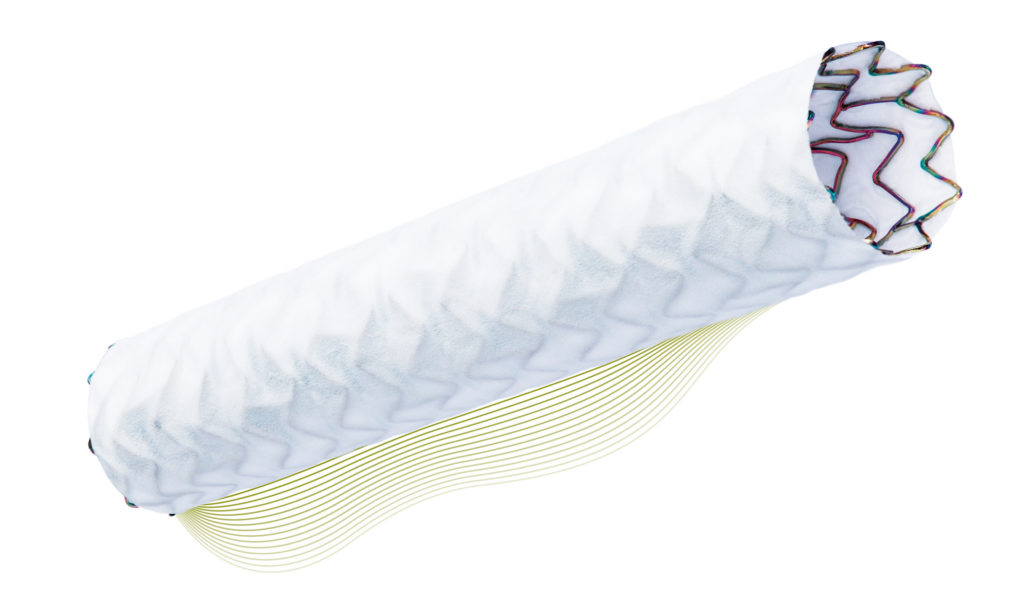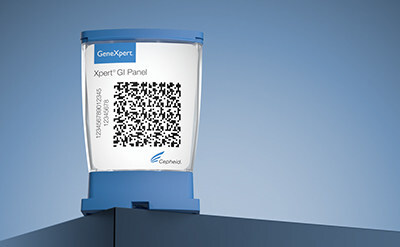Biotronik’s PK Papyrus Covered Coronary Stent System may treat a rare cardiac condition, but as the first new device approved by the FDA for this indication in nearly 20 years, it’s a promising tool in the cardiothoracic surgeon’s arsenal. As the US coronary stent market size reached an estimated $9.3 billion in 2016, Berlin-based Biotronik is hoping to cash in on this growing market.
The PK Papyrus Covered Coronary Stent System is designed to treat small tears in the blood vessels in the heart known as acute coronary artery perforations. Though rare, when these perforations do occur, it’s often part of a procedure – known as percutaneous coronary intervention – used to widen arteries that have been obstructed due to the build-up of fatty plaques.
In this procedure, surgeons use a flexible tube to position a balloon inside a narrowed coronary artery, which is then expanded to allow for insertion of a cardiac stent. The stent acts as a scaffold to support the artery walls and keep the vessel open, however tears or perforations can cause blood to leak out of the artery and accumulate in the pericardial sac which surrounds the heart muscle. This rare complication can be life-threatening.
“An acute coronary artery perforation is a rare, but potentially life-threatening complication of heart vessel procedures,” said Dr. Bram Zuckerman, director of the Division of Cardiovascular Devices in the FDA’s Center for Devices and Radiological Health. “The PK Papyrus Covered Coronary Stent System provides healthcare providers with a new treatment option that can seal the perforation in order to stop blood leakage during the procedure and avoid a potentially life-threatening complication or a more invasive surgical procedure.”
In contrast to other stents on the market, Biotronik’s PK Papyrus Covered Coronary Stent System is capable of sealing acute coronary artery perforations, while keeping the artery open and not impeding the flow of blood. It’s placed in almost the same manner as other stents – using a balloon catheter – and is less-invasive compared to other options for repairing tears in coronary arteries.
“In rare cases of a coronary perforation, time is the enemy,” said Dr. Dean Kereiakes, Interventional Cardiologist and Medical Director of The Christ Hospital and Vascular Center, Cincinnati, Ohio. “The device’s superior flexibility and tracking means that PK Papyrus delivers more like a conventional stent and can treat a perforation more quickly, avoiding further complications. Hospitals need to have this potentially lifesaving device ready for physicians to use.”
So, why not use this stent in all percutaneous coronary intervention to mitigate the risk of tears?
“Fortunately, coronary perforation is a very rare complication of heart vessel procedures. Because currently approved coronary stents are safe and effective in opening heart artery blockages, routine use of a covered stent is not necessary,” Tammy Wirt, a press officer from the Office of Media Affairs at the FDA, told Xtalks. “Further, unless a perforation is present, a covered stent would not be indicated since, compared to current generation coronary stents, covered stents can be more challenging to implant and come with their own set of risks that outweigh their potential benefits.”
Data from a small real-world study involving 80 patients who had suffered acute coronary artery perforations was used to support the FDA approval of the PK Papyrus Stents. The device had a 95 percent success rate at being delivered to the site of the tear, and over a 91 percent success rate at sealing the perforations.
“Perforation is very uncommon, but physicians need to be fully prepared for this emergency event,” said Marlou Janssen, President of Biotronik. “It’s unacceptable that this critical care area has seen no innovation in nearly two decades. PK Papyrus has been trusted in various international markets since 2013. Biotronik saw a need, rose to the occasion and invested in bringing this stent to the United States. We made this decision because patient care is paramount and we are committed to helping physicians and hospitals save lives and improve patient outcomes.”
The stent was approved under the FDA’s humanitarian device exemption process, an interesting pathway akin to the regulator’s review of orphan drugs. Devices which are designed as diagnostics or treatments for rare diseases which affect less than 8,000 people annually in the US are designated as Humanitarian Use Devices. Biotronik reports that less than 4,000 repairs of coronary artery perfusions are performed each year in the US.
Biotronik’s PK Papyrus Stent was approved in Europe in 2013.












Join or login to leave a comment
JOIN LOGIN